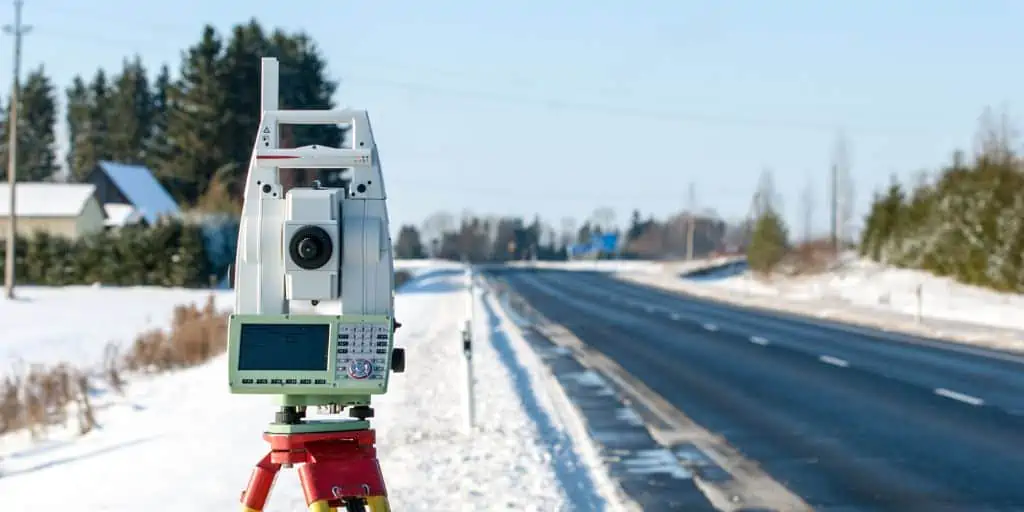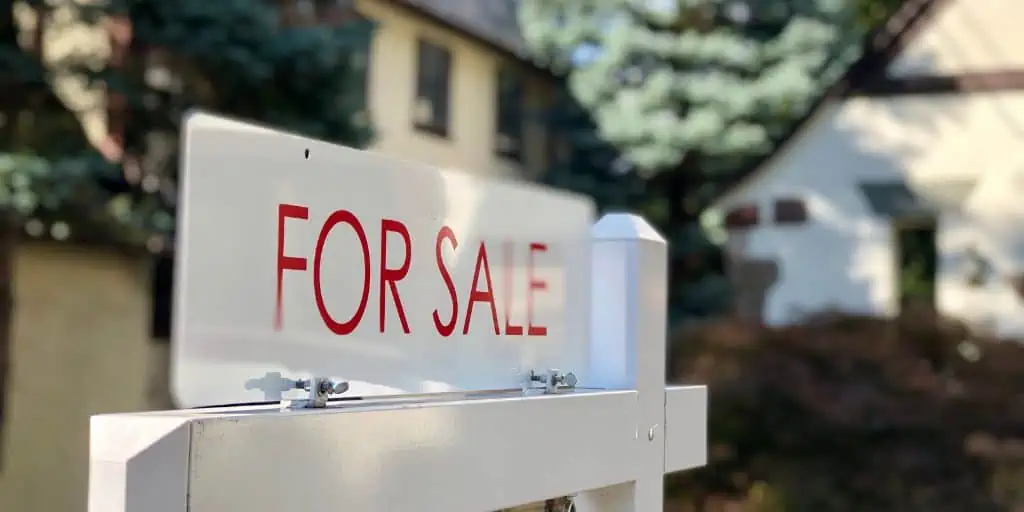What Does Landlocked Mean?
How Does a Parcel Become Landlocked?
Vacant lots can become landlocked for many different reasons. Some common scenarios are when land is subdivided and sold. It can also happen when a public road is rerouted, or a planned road is simply abandoned.
When subdividing large vacant lots, on some occasions, some vacant lots can become boxed off from public access, such as a public road, because of the land’s natural terrain or the subdivision’s design.

A land parcel can also get landlocked in other ways.
For example, local governments building a highway may inadvertently divide the land and create landlocked properties. Farmland with no entry or exit alongside the new infrastructure is one of the most common instances.
Landlocked parcels can also result when a larger parcel of land a family owns is divided among its members. By subdividing land into multiple smaller lots, the potential arises for landlocking a single lot. An ownership transfer of any of these parcels to a non-family member later can trigger a landlocked real estate issue.
Buying a landlocked parcel of land is a huge factor, even a red flag, due to development challenges or simply the ability to gain access to a landlocked property[2].
The definition of “landlocked” also applies to geography, i.e., a country with no coastal access, such as Switzerland. It is common to hear of a landlocked country or a landlocked region.
BY THE NUMBERS: The median lot size in the U.S. for new single-family detached homes is 8,177 square feet (0.188 of an acre)
Source: NAHB
Do Landlocked Lots Sell?
Landlocked properties do sell. Despite the status at the time of sale, these lots do not have to stay landlocked, as their owners can negotiate with their neighbors a right of access or easement[3].
An owner of a landlocked property has the legal right to seek in court what lawyers call an easement of necessity. This legal easement can exist even if not stated in the title of a landlocked lot.
The law generally grants all people the right to access their homes. An easement of necessity thus can be granted if there is a legitimate purpose and absolute necessity to cross somebody else’s property in the surrounding subdivided land.
The landowners subject to an easement may not interfere with the legal right of their landlocked neighbors[4].
At the same time, owners of neighboring lots also have rights and concerns that are just as important as that of the landlocked property’s owner.
Some of these concerns include[5]:
- Prospective buyers may see an easement as limiting how much a site can be developed.
- Structures along the easement to the landlocked lot may be unsightly for buyers and detract from the total value of the tract.
- Traffic passing through the easement, though legal, may turn off potential buyers, especially on residential lots.
Therefore, it is important to follow legal procedures on easement rights to ensure that the easement is fair for all parties.
How to Get an Easement
There are different ways to obtain an easement, specifically an easement of necessity. The appealing party (i.e., the landlocked owner) should work with a real estate attorney who can draft a written easement agreement to protect and represent their interests.
Applying for and negotiating an easement requires a few steps for the landlocked owner.
Requirements of Easement Application
Landlocked owners may have to go to court to obtain legal documentation on the easement. They cannot rely on oral permission alone to establish their legal access rights.
Without written legal documentation of this right, the owners of landlocked lots face the following constraints[6]:
- Their ability to sell the property will be limited.
- They may find it difficult to use their property as loan collateral.
- Title insurance companies typically do not extend coverage to landlocked properties.
Steps to Get an Easement
In general, applying for an easement occurs through the following steps.
1. Survey the Land
The first step toward obtaining an easement is to hire a land surveyor.
A survey shows the exact legal boundaries of the property. It may also uncover other helpful information, including details of the subdivision process whether there were any access routes to that parcel in the past, which can make getting an easement easier.
2. Contact the Property Owner
Some owners do not necessarily have to go to court; sometimes, the easiest way is to talk to the neighbors. Most landowners can often work out a deal with each other while avoiding the resentment from a court order.
That said, working out a deal might take some negotiation. It is not unusual for neighboring homeowners to reject offers for an easement or make a counteroffer. In some cases, the appealing party might have to pay a flat fee, but a cash settlement is usually less expensive and time-consuming than going to court to get an easement.
3. Meet With An Attorney
Negotiation or not, owners should not settle on an easement agreement until they meet with a real estate attorney who can represent them and navigate real estate laws.
Most attorneys will advise getting any easement agreements in written form. This way, both parties can refer to the documents in cases of legal dispute, now or in the future.
4. File a Court Order
In cases where the appealing party and their neighbor/s cannot agree on an easement agreement, a real estate attorney may give the landlocked owner legal leverage.
The easiest way to win this court battle is to prove that the same entity once owned the landlocked property and the adjacent one. In this case, the fault will lie in the subdividing party, such as an investor or a developer, who has failed to provide direct access to the landlocked property[7] when subdividing building lots.
This is far from ideal for landowners; hiring a real estate lawyer and going to court is expensive and time-consuming. Plus, even if the appealing party gains an easement by court order, they might end up having a strained relationship with their neighbor.
Therefore, going to court for an easement should be considered an absolute last resort.
Why Would an Investor Buy a Landlocked Property?
Landlocked properties are typically incredible bargains[8]. The stress of dealing with easement rules makes these properties sell at a significant discount—enabling property flippers to see increased profits on the backend.
Investors savvy with negotiation find the many benefits of landlocked properties usually outweigh the red tape of easement laws. An investor can purchase valuable land for far less than it would otherwise sell. Once the easement has been negotiated, they can turn around and sell it at a far higher price.
Novice real estate investors and new homeowners may also find landlocked properties more financially accessible. These residential lots are potential ways to buy land located in a particular area or community they normally would have been priced out of.
Takeaways
- In real estate, landlocked describes a parcel of land bordered by lots that others own.
- A landlocked property can only be accessed through its adjacent lots, usually by negotiating an easement with the neighboring lots’ owners.
- There are several ways to negotiate an easement, such as contacting the neighbor directly and filing a court order.
- Landlocked properties often sell at a steep discount thanks to these problems, but negotiation-savvy investors and first-time homebuyers may find them more financially accessible.
Sources
- Chen, J. (2022.) What Is Landlocked? Investopedia. Retrieved from https://www.investopedia.com/terms/l/landlocked.asp
- Steinberg, S. (2022.) What Does Landlocked Mean? Quicken Loans. Retrieved from https://www.quickenloans.com/learn/landlocked
- Washington Association of Realtors. (2020.) Landlocked Property. Retrieved from https://www.warealtor.org/resources/
- Doskow, E., (n.d.) Property Easements: Overview. NOLO. Retrieved from https://www.nolo.com/legal-encyclopedia/easements-overview.html
- Harris-Caldwell, S. (2021.) How Do Easements Affect Property Value? LRE. Retrieved from https://www.luxuryrealestate.com/blog/2021/02/08/18594-how-do-easements-affect-property-value
- Collins, S. (2021.) Is My Property Landlocked? MGMS. Retrieved from https://www.mgmpllc.com/blog/is-my-property-landlocked-part-1
- Rafter, D. (2021.) Buying Landlocked Property: What You Should Know. Rocket Mortgage. Retrieved from https://www.rocketmortgage.com/learn/landlocked-property
- LandCentral. (2021.) Finding the Key to Landlocked Properties. Retrieved from https://blog.landcentral.com/land-university-blog/finding-the-key-to-landlocked-properties










